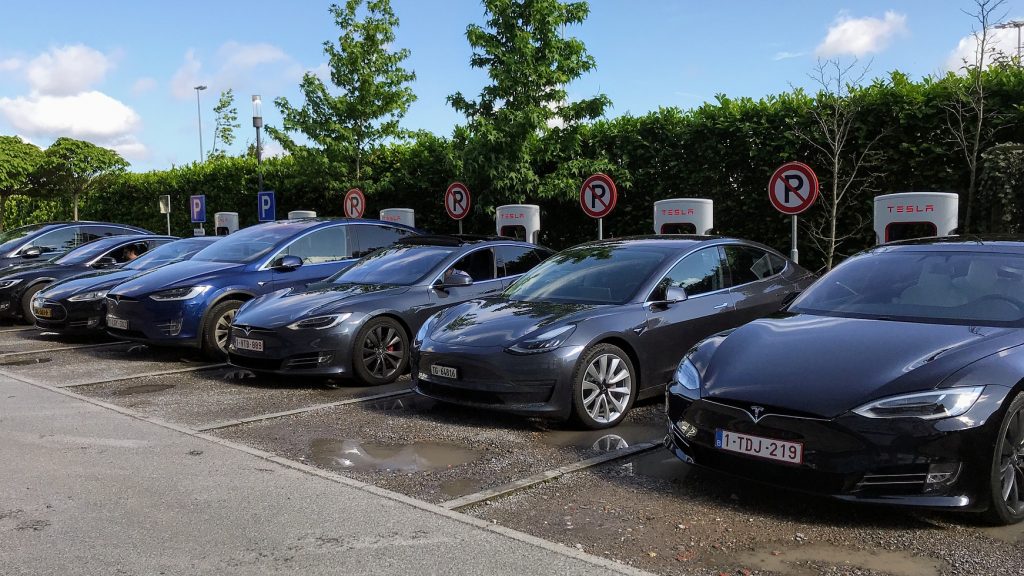Electric Vehicle Chargers Are More Difficult To Use?
Electrify America is rolling out confusing name changes to electric vehicle chargers nationwide.
This article is more than 2 years old
In a world where electric vehicles and electric vehicle chargers are the norm (not too far away), life is better, the air is cleaner, the polar caps aren’t melting, and gas power is but a memory. Sounds divine, doesn’t it? Chevy is in the process of producing an electric vehicle that finally everyone can afford so more people will no longer believe that owning an electric vehicle is out of reach. However, even before we can experience this electric vehicle utopia, we have reached a couple of electric vehicle charger obstacles.
The most recent obstacle recently occurred in California and was due to an intense heatwave that put a huge amount of pressure on the state’s power grid. This seems understandable. The other obstacle is something just a tad more absurd. Because, an organization seems to think that in the world of electric vehicle chargers, numbers are hard to understand.
Words Over Numbers
The names of the electric vehicle chargers that drivers should use—depending on the type of electric vehicle they own—are changing. And those names are fairly confusing. However, the leading electric vehicle car charger company, Electrify America, just proposed a new naming system that should be crystal clear to everyone. But, they aren’t.
Through Electrify America’s app, one can locate an electric vehicle charger station, purchase a pass to make buying charging up a little more affordable and seamless, and stay on top of all the details as America transitions to electric vehicles. It seems they also believe that, according to Vice, Americans get confused when it comes to numbers.
Choosing Your Electric Vehicle Charger

In the world of electric vehicle chargers, there is one charger that Tesla users primarily use. If you have a Tesla, you pretty much know what you’re doing and can ignore this new change. If you have any other car, you can choose from 350-kilowatt chargers or 150-kilowatt chargers. Quick quiz for non-electric car owners—which one electric vehicle charger do you think is faster? The 350 or the 150?
If you said 350 because it’s a higher number you’re smarter than Electrify America thinks you are. Because the organization believes—through information obtained from focus groups—that replacing those numbers with the words “Hyper-Fast” and “Ultra-Fast” is easier to understand for those using electric car chargers.
Now, before reading on, try to match the words “hyper” and “ultra” with their corresponding kilowatt numbers. Stumped? Of course, you are. No one knows how to quantify “hyper” or “ultra.” They are just words that both mean “fast” or “a lot.” They are, in a writer’s line of work, categorized as “fluffy, throw-away words.” When you’re dealing with electric car chargers, you need exact numbers, not silly adjectives that can mean the same word. No wonder some states in the rural west are pushing back against the Biden administration’s aggressive electric vehicle campaign.
Do We Really Have To Do This?
The reason behind the change—however unnecessary it may seem when you are using an electric car charger—is to align the charger labels with traditional gasoline terms like unleaded, premium, and diesel fuels. However, opponents of the change say that charging up an electric car is not at all like fueling up a car. Because the vast majority of electric vehicles can use the same type of charger (except for Tesla—but we established that Tesla drivers are already pros.)
Basically, the bigger the number, the faster it can charge. And we all know 350 is undoubtedly larger than 150. There is no grey area, there is no confusion. Numbers are true and real. Adjectives, however, contain multitudes—and can mean different things to different people. Sometimes it just feels like buying an electric vehicle and using electric vehicle chargers is now more difficult and confusing than ever.
Putting unnecessary obstacles in front of a typical American, even when it comes to electric vehicle chargers and their names, is not a great strategy to get the country hyped. Or excited. Or jazzed. Whatever you call it, it all means the same thing. Sadly, we seem to be losing interest in the electric vehicle renaissance. Will we rekindle the charge? Time will only tell.





